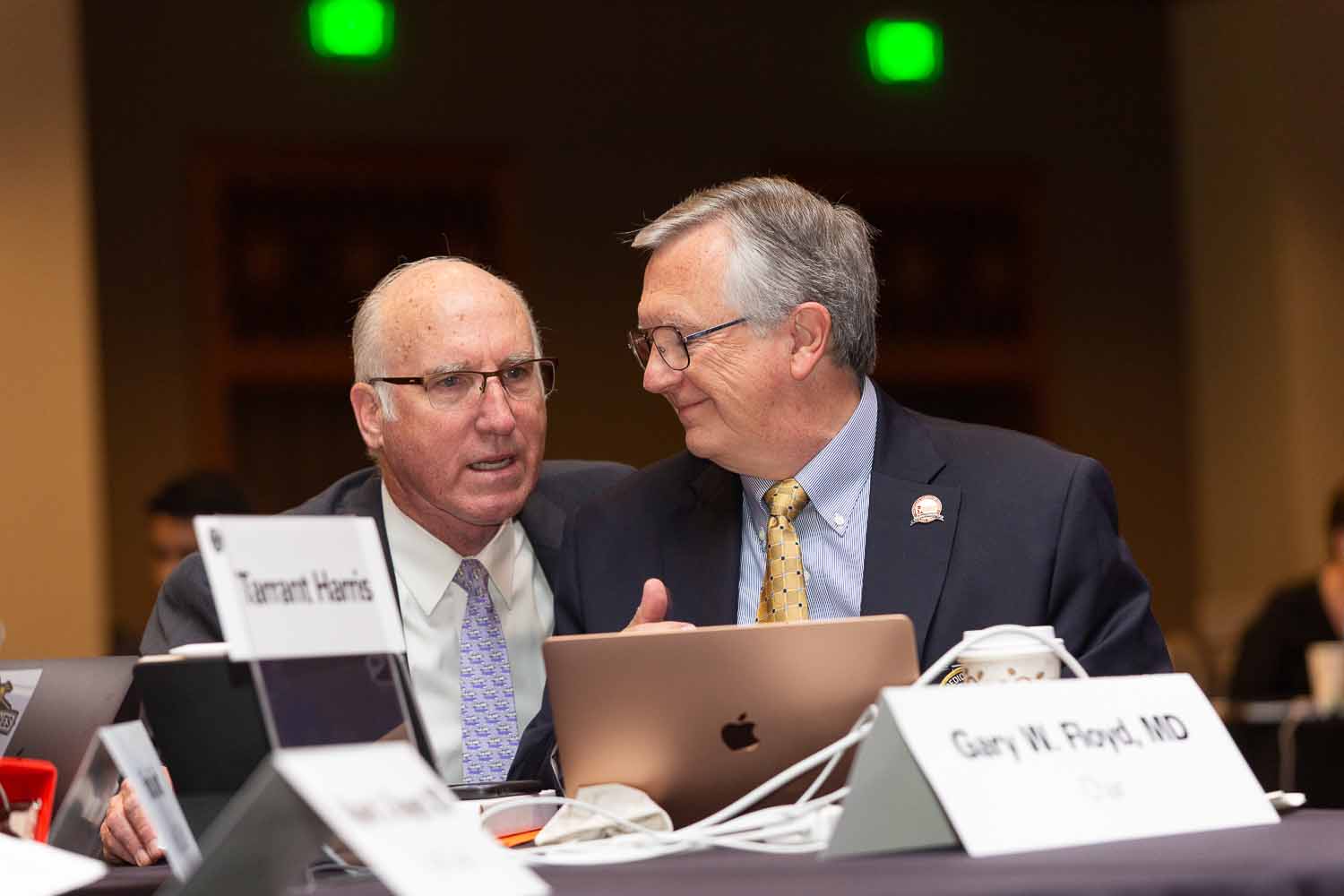
At the second live virtual convention of the Texas Medical Association House of Delegates, physicians carried out their policymaking duties to improve the health of all Texans despite being scattered across the state.
Delegates made headway on policies to address vaccine rollouts and nonmedical exemptions; emergency preparedness; postpartum depression screenings; prevention of suicide and physician burnout; health care reform; Medicaid payments; and red tape reductions and transparency in health plan practices, among others.
“It’s a beautiful thing to include physicians from across the state. We’ve had better election participation than we have before,” outgoing House Speaker Arlo Weltge, MD, said of the virtual experience. “This gives us the opportunity to be more inclusive.”
In fact, the first item of business resulted in a vote in favor of TMA evaluating “the feasibility of a virtual or hybrid option during the House of Delegates session for delegates to give testimony and vote on resolutions if unable to attend the meeting in person.”
The house also considered 50% more business this year as delegates took on numerous items tabled during the 2020 annual meeting, Dr. Weltge said. Because that first virtual meeting of the house took place later than usual in September 2020 under more restrictive pandemic conditions, delegates at the time only took on a limited calendar of “essential” house business.
This year, nearly 400 voting delegates – and even more attendees – participated in the meeting, which was conducted live online from the JW Marriott in Austin with limited in-person participation.
Once again using technology that allowed for remote voting, delegates overwhelmingly approved recommendations from four reference committees that collected and considered physician testimony on nearly 200 proposed recommendations and resolutions in the weeks leading up to the annual meeting on May 14-15.
Also at the 2021 annual meeting, Edinburg internist E. Linda Villarreal, MD, took the reins as TMA’s 156th president; delegates elected Keller pediatrician Gary W. Floyd, MD, as TMA president-elect; and Houston neurologist William H. Fleming III, MD – a TMA past president – was honored with TMA’s Distinguished Service Award.
Below is a short list of some of the top actions the house voted on this weekend in the four reference committees. Read Texas Medicine Today throughout the week for details on these and other TMA policy items.
In the Reference Committee on Science and Public Health, delegates voted to:
- Encourage routine postpartum depression screenings; and
- Advocate for the removal of nonmedical vaccine exemptions.
In the Reference Committee on Medical Education and Health Care Quality, delegates voted to:
- Adopt policy supporting post-pandemic research to inform state emergency preparedness agencies when it comes to hospital surges; and
- Study ways to address, screen, and provide healthy coping mechanisms for burnout.
In the Reference Committee on Socioeconomics, delegates voted to:
- Advocate for legislation requiring commercial insurance carrier coverage transparency;
- Urge insurers to stop requiring physicians “to spend time – in addition to their extensive professional training – in training in each companies’ requirements for patient care”;
- Advocate to increase Texas Medicaid physician payment rates to at least Medicare rates.
In the Reference Committee on Financial and Organizational Affairs, delegates voted to:
- Study noncompete agreements in physician employment contracts with a report back to the house no later than TexMed 2022; and
- Study a measure that would give physicians a way “to bring their concerns regarding decisions made by physicians working for insurance companies to the attention of the Texas Medical Board and Texas Department of Insurance.”
Amy Lynn Sorrel
Associate Vice President, Editorial Strategy & Programming
Division of Communications and Marketing
(512) 370-1384